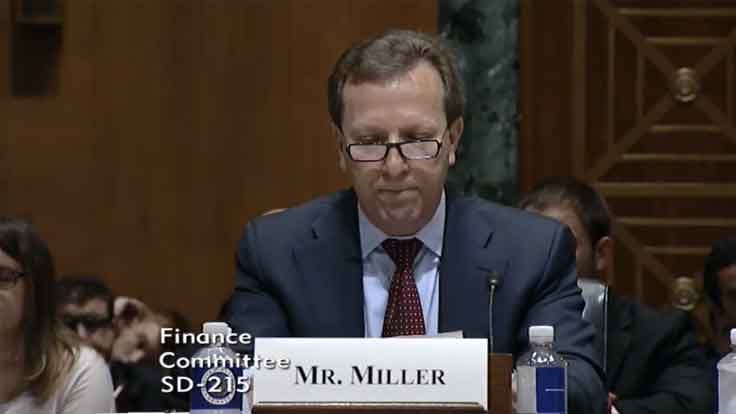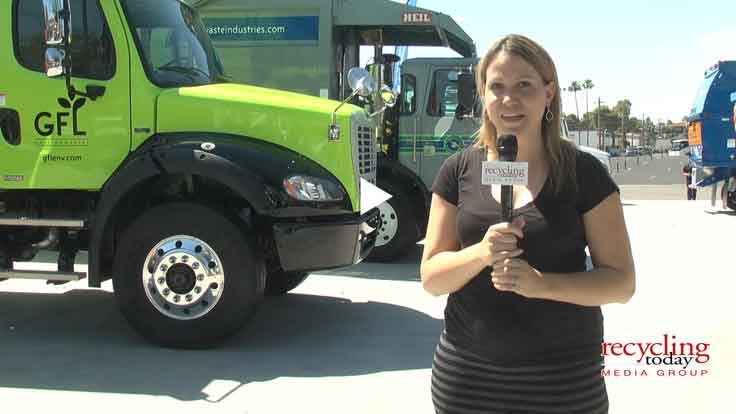Senate Finance Committee Chairman Orrin Hatch, R-Utah, convened a hearing on June 14, titled “Energy Tax Policy in 2016 and Beyond,” to examine energy tax provisions.
“As the Committee continues to chart the course towards a comprehensive overhaul of the tax code, a thorough review of energy tax provisions is a must,” Hatch said. “With this hearing, members of the committee will have the opportunity to explore how the code affects the energy industry and what policies have the most merit as we look forward towards tax reform.”
Among the speakers were Steve Miller, chief executive officer, Bulk Handling Systems (BHS), Eugene, Oregon, and Zero Waste Energy (ZWE), Lafayette, California.
He described ZWE’s anaerobic digestion technology to the committee and its ability to transform oganic materials, including source separated organics, yard and food waste from municipal solid waste into biogas to produce electricity or compressed natural gas (CNG). The organic materials remaining after the process are used in compost or engineered fuel approved by the U.S. Environmental Protection Agency.
He said the focus of his speech was to describe opportunities that changes in tax policy will have to accelerate the company’s efforts.
“Through our anaerobic digestion process we create baseload renewable fuel and/or electricity from the large percentage of food waste and other organic materials in our waste stream that would otherwise decompose for years in a landfill; leaking methane and carbon dioxide into the atmosphere,” he said
Though products ZWE creates are attractive, Miller says, “Our development has been slowed by low prices for electricity, oil and natural gas. Since the renewable products that we produce compete with these fossil fuels, we have been challenged to provide our Customers the economics needed to fund projects.”
He also pointed out some of the additional benefits of anaerobic digestions compared with wind and solar, saying that unlike those technologies, anaerobic digestion produces electricity in all weather conditions, 24/7, 365 days per year.
“Despite the significant advantages of our proven technology, it has been difficult to compete for scarce investment dollars against solar and wind,” explained Miller, who added, “While I certainly appreciate the Senate’s attentiveness toward renewable energy generally, the policies adopted at the end of 2015 do not do enough.”
He pointed out to the committee that while wind and solar received long term Investment Tax Credits (ITC) and Production Tax Credits (PTC) biogas credits were extended to only the end of 2016 for the biomass industry and only applied to the renewable energy portion of the project.
“Since development of such a project takes several years, the early expiration of the credit makes the value extremely limited from a planning and development perspective,” Miller said. “Additionally, all of our systems are required to produce compost as a byproduct of the renewable biogas production process.”
Compost system capacity should also be considered as part of the cost of an anaerobic digestions sytem, he emphasized.
“Limiting the credit to only the energy portion and ignoring the compost element puts the renewable energy portion at risk,” Miller warned.
He asked for consideration of the following:
- extend the PTC for biogas technologies for five years with no phase out;
- give those technologies an equal credit to wind per kilowatt-hour;
- ensure that the legislation that allows technologies to convert a PTC into an ITC is extended;
- allow biogas that is used as transportation fuel to qualify for both the PTC and ITC (currently it only qualifies if used for electricity); and
- include the cost to develop the compost and nutrient recovery technology portion of the renewable energy project. Extension of the credit to include compost technologies would significantly expand the development of waste to energy and compost facilities.
He said the committee’s help in this area would increase diversion of material from landfill to a beneficial use; reduce greenhouse gas emissions from organic wastes; create high paying domestic jobs for companies like mine as well as our owner/operator customers; increase renewable fuel production; increase baseload renewable power generation; and increase nutrient-rich compost generation for agriculture.
Other speakers included:
- Dr. Benjamin Zycher, John G. Searle Chair and Resident Scholar, American Enterprise Institute, Washington
- Susan Kennedy, Chief Executive Officer and Board Member, Advanced Microgrid Solutions, San Francisco
- The Honorable Karen Alderman Harbert, president and chief executive officer, Institute for 21ST Century Energy, United States Chamber of Commerce, Washington
A video of the hearing is available at www.finance.senate.gov/hearings/energy-tax-policy-in-2016-and-beyond.




